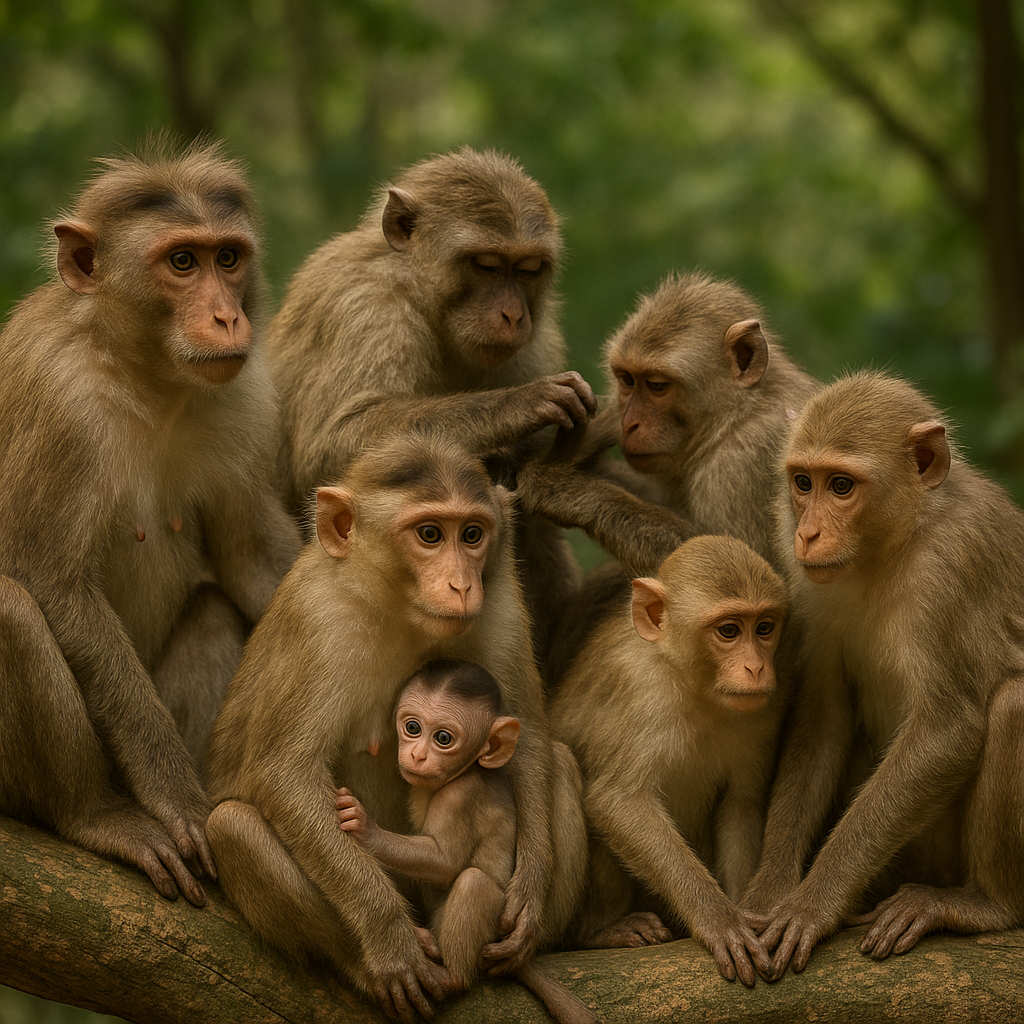Monkeys live in groups mainly for protection, survival, and social bonding. Here’s a detailed breakdown of why monkeys live in groups:

🛡️ 1. Protection from predators
- Safety in numbers: A large group can spot danger faster—when one monkey sees a predator (like a leopard or eagle), it warns the rest with alarm calls.
- Group defense: Some species work together to scare off predators.
🐒 2. Social bonding and cooperation
- Grooming and care: Monkeys build strong relationships through grooming, which reduces stress and keeps them clean.
- Raising young together: In many species, other members help take care of babies, giving them better chances of survival.
🍌 3. Better for finding food
- More eyes = more food: Groups can find food sources faster.
- Defense of territory: Larger groups can protect feeding areas from rival troops.
🧠 4. Learning and communication
- Young monkeys learn from elders: They watch and copy how adults find food, use tools, or stay safe.
- Language and signals: Group life helps monkeys develop more advanced ways of communicating.
🏆 5. Mating and reproduction
- More mating opportunities: Living in groups gives males and females more chances to find partners.
- Competition and choice: Females may choose the strongest or most dominant male to mate with.
Leave a Reply